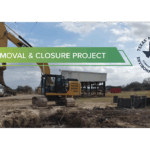
In today’s rapidly changing world, environmental compliance auditing has become a crucial practice for businesses and organizations across the globe. Corpus Christi, a vibrant city situated along the Texas Gulf Coast, takes environmental compliance seriously. In this article, we will explore the concept of environmental compliance auditing, the role Corpus Christi plays in ensuring compliance, the process involved in conducting audits, the challenges faced, and the future of environmental compliance auditing in Corpus Christi.
Understanding Environmental Compliance Auditing
Environmental compliance auditing refers to the systematic process of assessing and evaluating an organization’s adherence to environmental regulations and standards. It provides an opportunity to identify any areas of non-compliance and implement corrective measures to mitigate potential environmental risks.
Environmental compliance auditing is a crucial aspect of corporate governance in today’s world, where sustainability and environmental responsibility are at the forefront of business practices. Companies that prioritize environmental compliance auditing demonstrate their commitment to protecting the environment, reducing their carbon footprint, and operating in a socially responsible manner.
Definition and Importance of Environmental Compliance Auditing
Environmental compliance auditing involves examining various aspects of an organization’s operations, including emissions, waste management, water usage, and energy consumption. By conducting regular audits, companies can ensure that they meet legal requirements, minimize their environmental impact, and uphold their commitment to sustainability and corporate social responsibility.
Moreover, environmental compliance auditing goes beyond mere regulatory compliance; it also helps organizations identify opportunities for cost savings, process improvements, and innovation. By analyzing their environmental performance through audits, companies can uncover inefficiencies, streamline operations, and enhance their overall competitiveness in the market.
Key Components of an Environmental Compliance Audit
An effective environmental compliance audit consists of several key components. Firstly, it involves a comprehensive review and analysis of the organization’s environmental policies, procedures, and practices. This includes examining permits, licenses, and other legal requirements. Secondly, it assesses compliance with applicable laws and regulations, such as those related to air quality, water management, and hazardous waste disposal. Lastly, it evaluates the effectiveness of the organization’s environmental management systems and identifies areas for improvement.
Furthermore, environmental compliance audits often involve collaboration with internal and external stakeholders, including regulatory agencies, environmental consultants, and community groups. This collaborative approach not only ensures a thorough assessment of environmental performance but also fosters transparency, accountability, and trust among all parties involved. By engaging with diverse stakeholders, organizations can gain valuable insights, build strong relationships, and demonstrate their commitment to environmental stewardship.
The Role of Corpus Christi in Environmental Compliance
Corpus Christi takes pride in its commitment to environmental sustainability. The city has implemented stringent environmental policies and regulations to protect its unique natural resources and maintain its pristine ecosystem. Corpus Christi’s proactive approach to environmental compliance has made it a role model for other cities striving to achieve similar goals.
Corpus Christi’s Environmental Policies and Regulations
Corpus Christi has established a comprehensive framework of environmental policies and regulations to ensure the protection of its natural environment. These regulations cover a wide range of areas, including air and water quality, waste management, and land use. By adhering to these strict regulations, Corpus Christi creates an environment conducive to sustainable development and safeguards its natural heritage.
The Impact of Corpus Christi’s Geographical Location on Environmental Compliance
Corpus Christi’s geographical location along the Gulf Coast presents unique challenges for environmental compliance. The city’s close proximity to sensitive ecosystems, such as estuaries and wetlands, necessitates careful monitoring and preservation efforts. Additionally, the presence of industrial and commercial activities requires strict enforcement of environmental regulations to prevent pollution and safeguard the surrounding natural resources.
The Process of Environmental Compliance Auditing in Corpus Christi
The process of environmental compliance auditing in Corpus Christi involves several stages, from pre-audit activities to post-audit reporting and follow-up.
Pre-Audit Activities and Planning
Prior to conducting an audit, thorough planning and preparation are essential. This includes identifying the scope of the audit, assembling an audit team with the necessary expertise, and reviewing relevant documentation, permits, and regulations. Effective planning ensures that the audit is conducted efficiently and covers all necessary areas.
Conducting the Audit: Inspection and Evaluation
During the audit, the auditor assesses the organization’s compliance with environmental regulations through a combination of inspections, interviews, and document reviews. They evaluate the organization’s environmental management systems, operational practices, and record-keeping to identify any areas of non-compliance or potential risks. This comprehensive evaluation provides insights into the organization’s overall environmental performance.
Post-Audit Activities: Reporting and Follow-up
After the audit, the auditor prepares a detailed report documenting their findings, including any non-compliance issues identified and recommendations for improvement. This report serves as a valuable resource for the organization to address areas of concern and implement corrective actions. Additionally, the organization should establish a system for monitoring progress and follow up on the implementation of recommended changes to ensure ongoing compliance.
Challenges and Solutions in Environmental Compliance Auditing
While environmental compliance auditing brings numerous benefits, it also poses various challenges that organizations must address.
Common Challenges in Environmental Compliance Auditing
One common challenge is staying up to date with ever-changing environmental regulations and ensuring compliance across multiple jurisdictions. Additionally, the complexity of environmental management systems and the availability of accurate data can pose challenges for auditors. Finally, financial constraints and resource limitations may hinder organizations’ ability to invest in environmental compliance measures.
Effective Solutions and Strategies for Compliance Auditing
To overcome these challenges, organizations can adopt several effective solutions and strategies. These include engaging external environmental consultants to provide expertise and assist with keeping up-to-date with regulatory changes. Implementing robust environmental management systems, supported by technological solutions, can streamline compliance efforts. Lastly, organizations should prioritize environmental compliance as an integral part of their corporate culture and allocate sufficient resources to ensure its successful implementation.
The Future of Environmental Compliance Auditing in Corpus Christi
Looking ahead, environmental compliance auditing in Corpus Christi is expected to evolve in response to emerging trends and the city’s commitment to environmental sustainability.
Emerging Trends in Environmental Compliance Auditing
Technological advancements, such as the use of artificial intelligence and data analytics, are revolutionizing the field of environmental compliance auditing. These tools can enhance the efficiency and accuracy of audits by automating data collection and analysis processes. Additionally, there is a growing focus on incorporating sustainability practices throughout the entire supply chain, which will influence the scope and approach of future audits.
Corpus Christi’s Plans for Environmental Sustainability and Compliance
Corpus Christi has set ambitious goals for environmental sustainability and compliance. The city aims to reduce greenhouse gas emissions, improve air and water quality, and protect its natural resources. Corpus Christi plans to collaborate with local businesses, organizations, and residents to develop innovative solutions and implement environmentally friendly practices. By fostering a culture of environmental stewardship, Corpus Christi strives to become a model of sustainable development.
In conclusion, environmental compliance auditing plays a vital role in ensuring that organizations adhere to environmental regulations and minimize their impact on the ecosystem. Corpus Christi’s commitment to environmental compliance and sustainability sets an example for other cities. By conducting thorough audits, implementing effective solutions, and embracing emerging trends, Corpus Christi aims to preserve its natural treasures and secure a greener future for generations to come.
If you’re inspired by Corpus Christi’s dedication to environmental compliance and sustainability and are seeking to ensure your business meets the highest standards, ESE Partners is here to guide you. Our team of seasoned environmental engineers and scientists specializes in delivering tailored solutions that address the unique environmental challenges your business faces. From assessment and remediation to compliance and natural resource management, we are committed to responsibly moving your business forward. Don’t wait to take the next step towards a greener future. Request A Proposal today and partner with us to enhance your environmental stewardship and contribute to a sustainable community in Corpus Christi and beyond.








